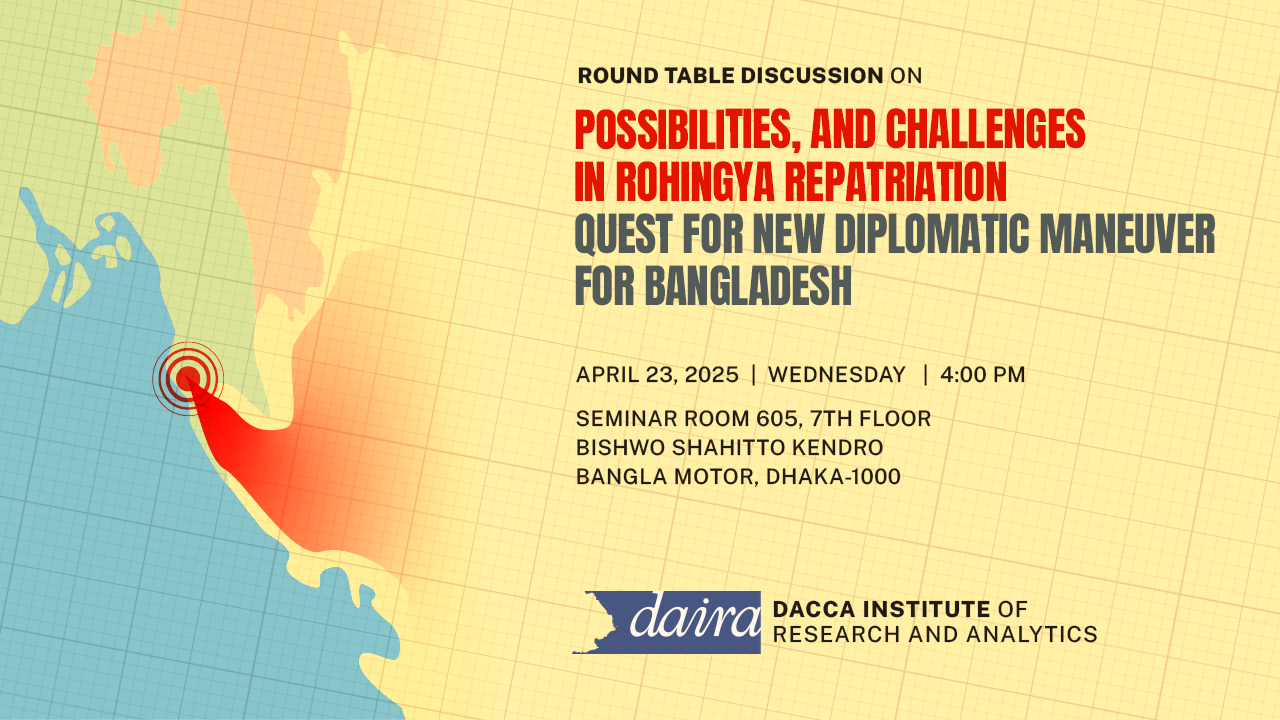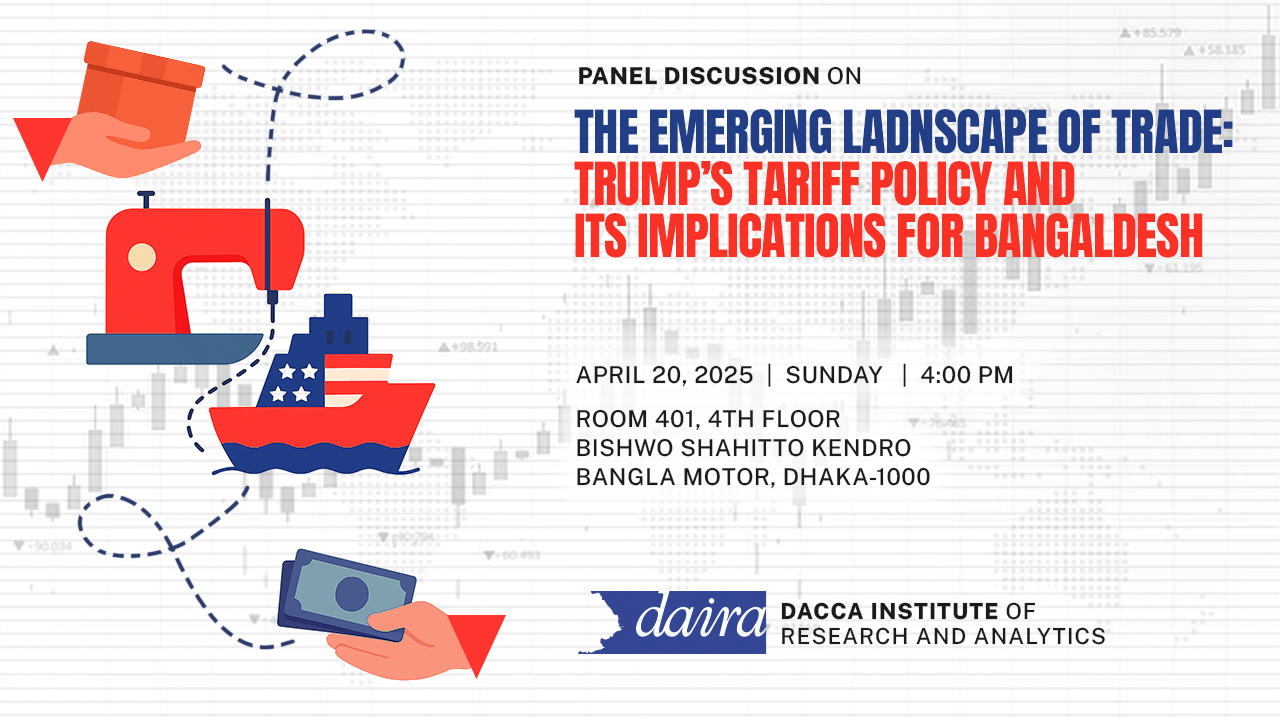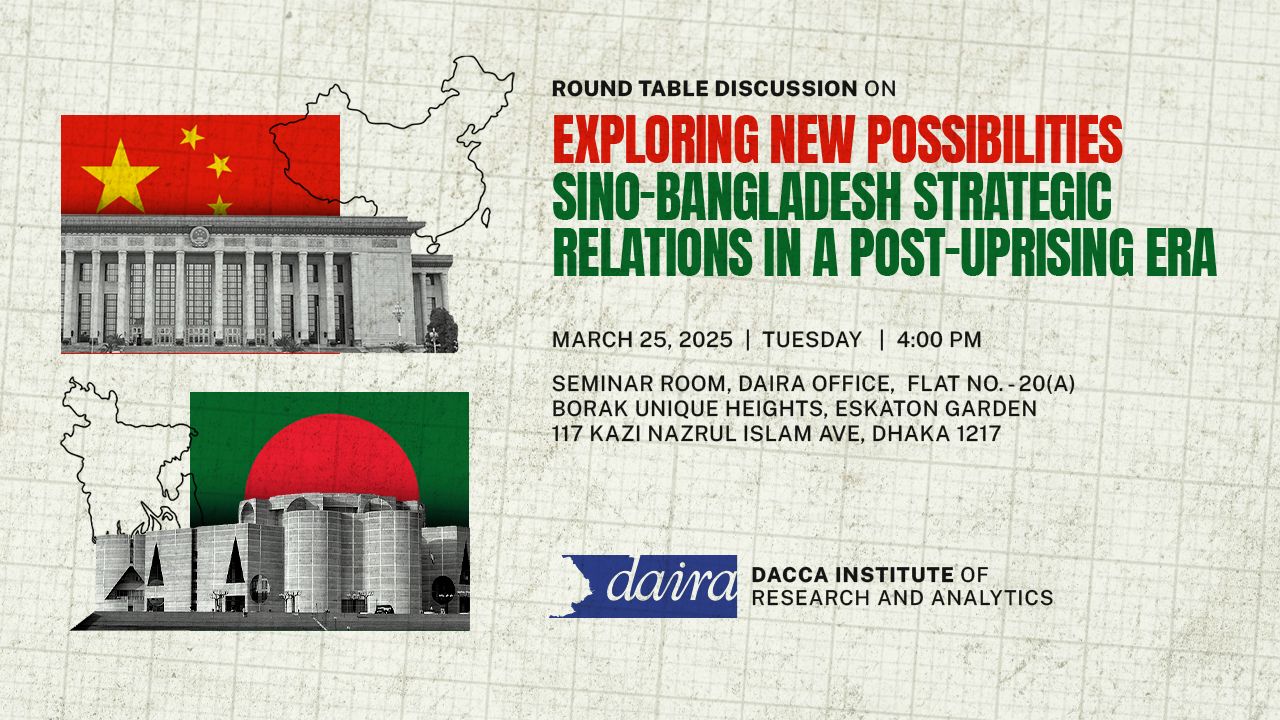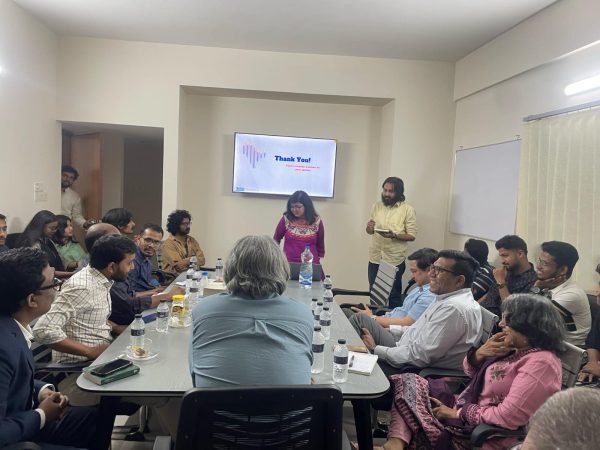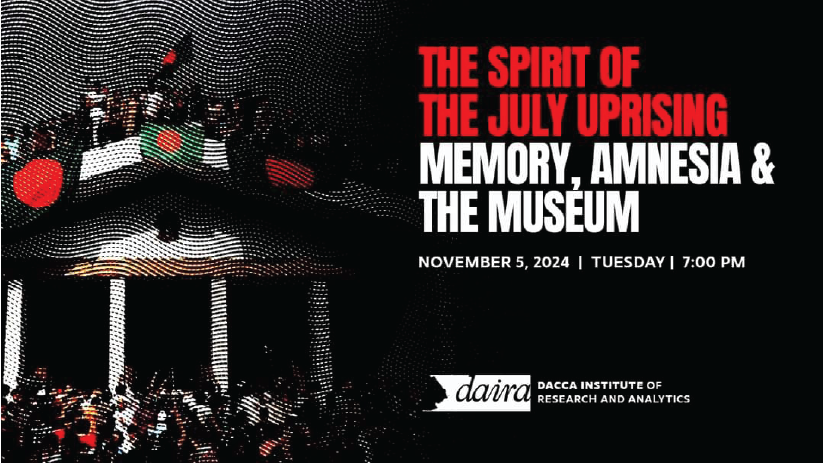Possibilities and Challenges in Rohingya Repatriation: Quest for A New Diplomatic Maneuver for Bangladesh
Possibilities and Challenges in Rohingya Repatriation: Quest for A New Diplomatic Maneuver for Bangladesh Introduction: The Rohingya crisis is one of the most pressing humanitarian and geopolitical challenges in South and Southeast Asia. It is a test of regional and global commitment to justice, political will, and collective diplomacy. A lasting solution requires multilateral engagement […]


